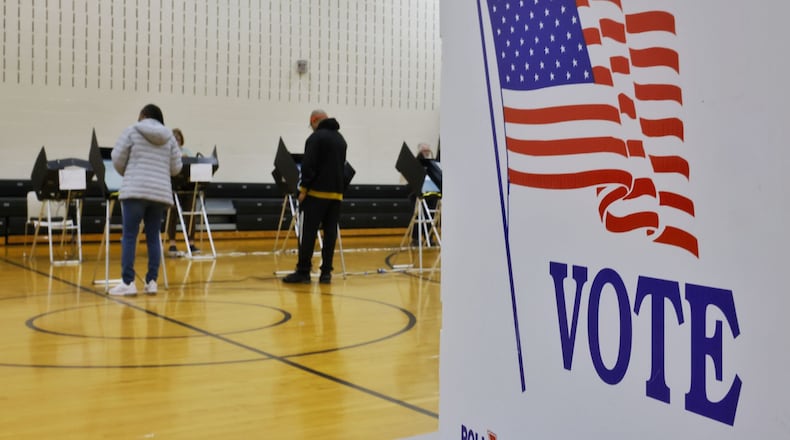The co-chair of the group, former state legislator Bill Seitz from Cincinnati, told this media outlet he and co-chair Pat Tiberi sat down with Gov. Mike DeWine and identified 12 topics for the group to consider. One focus is adjusting the Homestead exemption and a “circuit breaker” concept that gives tax breaks based on the percentage of income paid in property taxes.
There were five topics discussed Aug. 14. Four were already approved by the legislature and vetoed by DeWine. The Homestead and circuit breaker ideas would cost the state money, so they didn’t want to start with those because “the General Assembly leadership has been pretty adamant that they don’t want to spend any money to provide property tax relief.”
“Candidly if we had started with that, none of those bills have even really picked up a lot of traction, and it would be portrayed see how useless this committee is,” Seitz said. “They picked one of their earliest get down to brass tacks meetings to talk about stuff that we the legislature have already said is not even going to be considered. But we intend to get to it.”
Up for debate
The group discussed limiting school district carryover, giving county budget commissions more power to reduce levies they deem “unnecessary or excessive,” eliminating certain types of tax levies and adjusting the 20-mill floor calculation.
It also debated House Bill 186 which would limit increases in property tax revenues for school districts at the 20-mill floor to the three-year average rate of inflation.
Seitz said previously the governor doesn’t have any preconceived notions on outcomes. He told the group they’re not trying to reinvent the wheel.
“Part of what I’m trying to get to with this group is to come up with consensus of what we want for sure,” he said. “But also to meet the legislature halfway or better in what they’ve already determined, because we’re not the legislature.”
The group found some of the reforms lacking, and suggested changes. The 40% carryover cap — the House version had a 25% cap and Senate 50% — for example was deemed “arbitrary.” It was the only vetoed measure the House wasn’t going to override because the beefed up Budget Commission power can serve the same purpose.
Schools will be put to work
The group tentatively agreed that any school district carrying more than 100% of its operating expenses must justify the need in writing to the budget commission.
This news outlet asked former Ashtabula auditor Rep. David Thomas — who has been tapped by Republican leadership to shepherd property tax reform — what he thought about the suggestion. He called the 100% threshold “asinine.”
“It’s literally saying the 580 schools that have less than 100% of carryover don’t actually have enough carryover and should get more,” he said. “Completely antithetical to the whole issue we’re talking about. And I worry that allowing for high carryovers just promotes the cycle.”
Seitz told this media outlet the group isn’t wild about having any carryover limiting provisions, “all you’re going to do is force them to spend it down so they don’t have to give it back,” or “they’ll be back to voters more quickly than they otherwise wanted to be and then what do you have, higher property taxes.” But the 100% threshold basically follows prudent financial practices and addresses concerns voiced by school officials.
Defining language
The property tax group found the budget commission provision needs some work because there is no concrete definition of what is “unnecessary or excessive.”
“These are words not in the code that are undefined,” Lake County Auditor Chris Galloway said. “As I have repeatedly told legislators throughout testimony of the budget is stop leaving it up to judges to interpret, because that ends up in a mess itself. The challenge will be to define unnecessary or excessive, it’s like the old adage of I can’t define pornography but I know it when I see it.”
In terms of eliminating replacement levies for all taxing bodies and emergency and substitute levies for schools, it is the only tax relief measure that was fully vetted in committee and moved from one chamber to the other this year. The thought was these types of levies can be deceiving.
There was no clear consensus on this item, so they’ll continue the debate, but Hamilton County Commissioner Denise Driehaus reiterated the group can’t lose sight of the fact the voters approve these tax increases.
“I think the language does need to be more clear so the voters know what they’re voting on, but I’ve heard loud and clear from the school districts that there are different tools that you are using, whether or not this levy gets to expand with inflation or not is up to the school to ask for and voter to vote on,” she said. “So I’m a little hesitant to take the tools away from the schools as long as the voters are clear on what they’re voting on.”
It is possible HB 186 might be the answer to a lot of the different components the group is wrestling with, like whether to tinker with the 20-mill floor calculation. Group members referred to it repeatedly throughout the lengthy meeting.
The group, at Seitz’s urging, might even recommend expanding the measure to include restricting inside millage growth to the cost of living.
Thomas, who proposed House Bill 335, a radical bill that would eliminate inside millage completely, said he is already working on a sub-bill to cap inside millage instead of abolishing it.
Several legislators have said they want to get HB 186 passed as soon as they return after the summer break, “the fact that this group is likely going to be giving it a thumbs up in some form might help them get it passed,” Seitz said.
The working group will meet again Thursday, Aug. 21.
About the Author
